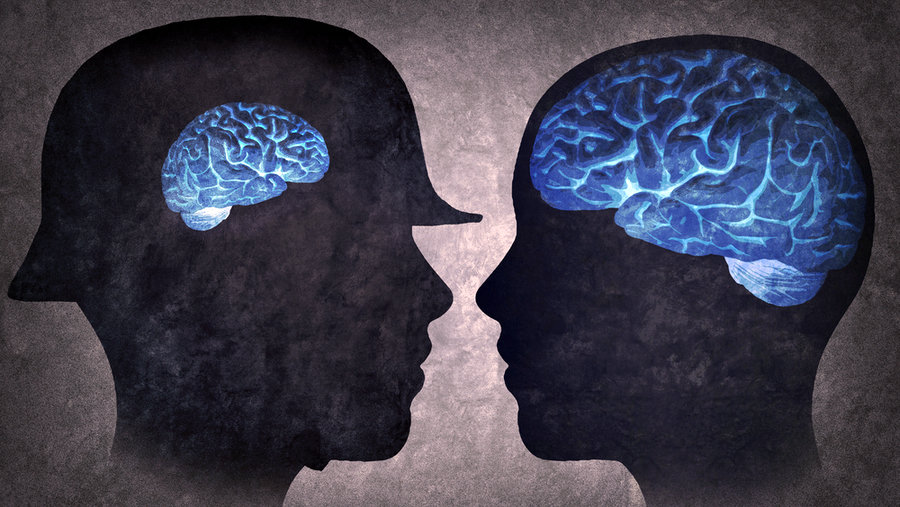Contents:
- Medical Video: Infection After Transplantation
- Side effects of drugs after organ transplantation
- Health problems
- Other drugs taken after an organ transplant
- Psychological conditions after organ transplants
- Routine after organ transplant
Medical Video: Infection After Transplantation
Usually people who have undergone organ transplants can live normally afterwards. However, still organ transplants can bring several challenges, whether physical challenges or mental challenges.
Many people still misperceive their lives after organ transplant surgery. After surgery, there are still many people who think that the effects of this transplant will end within a few weeks. Very wrong. Postoperative recovery time requires high determination, because even though this organ transplant may indeed save your life, you must pay attention to many things to "care for" this new organ in your body. Here are 5 challenges that you might face after an organ transplant.
Side effects of drugs after organ transplantation
Drugs consumed to suppress the immune system after organ transplants are indeed hard drugs that can cause other side effects throughout the body. Which means, this drug not only suppresses the immune system, but this drug also affects the entire body. So, the bad news is that you may experience some health problems due to the side effects of this drug. The good news is that these side effects will decrease over time.
Here's a list of side effects that you might experience:
- Nausea and vomiting
- Diarrhea
- Headache
- High blood pressure
- High cholesterol levels
- Swollen face
- Anemia
- Arthritis
- The plague weakened
- Weight gain
- Insomnia
- Moody
- Tingling in the hands and feet
- Acne or other skin problems
- Trembling
- Hair loss
- It grows fur in several parts of the body
Yes, indeed it looks a very long list. However, don't be stressed. Not everyone will experience side effects as mentioned above. Everyone has different responses to this drug. Make sure you inform the doctor of your side effects. Your doctor may change the medication you are taking.
Health problems
These health problems depend, from those that are just disturbing, to those that are life threatening. The following is a list of health problems that may be experienced by organ recipients:
1. Diabetes
2. High cholesterol levels
High cholesterol levels often occur in people who are organ transplant recipients due to the side effects of immune system control drugs. There are no physical signs when your cholesterol is high. However, this can be dangerous. This Kolestorol can clog your blood circulation, and may damage your new organ. In addition, this can also cause heart disease.
3. High blood pressure
Just like high cholesterol levels, high blood pressure is a side effect of immune system suppressants. This can cause serious problems. However, usually high blood pressure will decrease with the decrease in the dose of the immune system suppressant you drink. You may have to change your lifestyle to help stabilize your blood pressure, namely by eating healthy foods and exercising regularly.
4. Digestive problems
This is very common in organ transplant recipients due to the side effects of steroids. Usually, your doctor will make prescription drugs to help with this problem. From yourself, you can avoid drinking alcoholic beverages and those containing caffeine, and make it a habit to take medicine along with your food to reduce irritation.
5. Gout
Increased uric acid in the blood can cause gout, aka pain or inflammation in the joints. This is also caused or exacerbated by the side effects of immune system suppressants. Treatment for this problem depends on your condition. It could be that your doctor replaces the medication you are taking to overcome this problem.
6. Sexual problems
Some people who receive organ transplants have sexual problems such as loss of sexual desire. These signs can occur due to health problems, the influence of drugs, stress, or a combination of these three problems. Even though sometimes this might be embarrassing, also consult this with your doctor. There is nothing to be considered as a shame, your doctor may have a solution to solve this problem.
7. Growing fur
You can grow unwanted hair on some parts of your body. The solution is of course shaving, waxing, or use certain products to trim the feathers.
Other drugs taken after an organ transplant
In some cases after an organ transplant, you may need other medicines to help you deal with the side effects of an immune system suppressant drug, for example:
1. Antibiotics or antifungal
This drug serves to treat infections in your body that occur as a result of your immune system that functions not optimally due to suppressed immune system suppressants.
2. Antacid or antiulcer drugs
This drug serves to treat side effects in your digestion.
3. Diuretic drugs
This drug works to help with problems in your kidneys and high blood pressure
Many people need more medication during the initial postoperative times. However, don't be afraid, as time goes by your doctor will reduce the dose of the immune system suppressant medication, which means that the side effects of the immune system suppressant drugs will also continue to decrease.
Because people who receive organ transplants need a lot of drugs, you must be careful about the interactions of these drugs with each other. Make sure your doctor knows all the drugs you are taking. Even though the drug is a supplement or herbal medicine, you still have to confirm to your doctor whether the drugs are safe to drink. In fact, some foods such as grapefruit juice can interact with several drugs after organ transplantation.
Psychological conditions after organ transplants
People who receive organ transplants will usually experience a variety of fears, ranging from life-threatening health problems before transplantation: when waiting for the right donor, post-transplant recovery, and life with a new organ. Therefore, it is not surprising that many organ transplant recipients experience depression or chronic fear. The drugs taken can make things worse and cause you to get more moody. Even though this is common, do not consider this to be normal. Consult this with your doctor to find the right solution.
The good news is that most people will feel better after undergoing an organ transplant. Usually, after receiving an organ transplant, these people will comment like "I don't remember how much pain I felt before the transplant", and so on. However, don't rush to force your body to do extreme activities, keep watching and keep your body in shape.
Routine after organ transplant
Make sure you always get in touch with doctors who do organ transplants to you. You may be given a schedule to carry out various types of postoperative tests, although this depends on your circumstances. For example, if you have a heart transplant, your doctor may ask you to come to control twice a week for the first two months. Working the heart which pumps blood at any time needs careful attention.
Of course, for organ transplant recipients, the word "infection" is something that will not be separated throughout your life. You must balance your immune system while still controlling and maintaining your lifestyle to support your suppressed immune system to receive new organs. Keep consulting any type of side effects that you experience as a result of taking immunosuppressants with your doctor so you can find a solution.
Another important thing to keep in mind is that it does not mean you can live freely as you wish after an organ transplant. For example, you have a kidney transplant due to diabetes, but you do not control your lifestyle after a transplant so that diabetes returns, so what is the use of transplantation? Keep in mind that organ transplants do not mean your body becomes immune to the disease in the transplanted organ.
Organ transplantation is indeed about tugging, aka there are benefits and there are losses due to this action. However, once you realize that this transplant is being carried out to bring your life better, it will be easier for you to comply with all the procedures that must be followed postoperatively. Don't forget to also ask support from your family, close relatives, and friends, especially when you have just finished surgery. It's far better if you have some people around you who also understand about your medicines, so they can help remind you to take medicine or keep your lifestyle according to the rules.
READ ALSO:
- Various Causes of Kidney Transplant Failure
- What is the Kidney Transplant Process Like?
- Get to know the ins and outs of heart transplant












